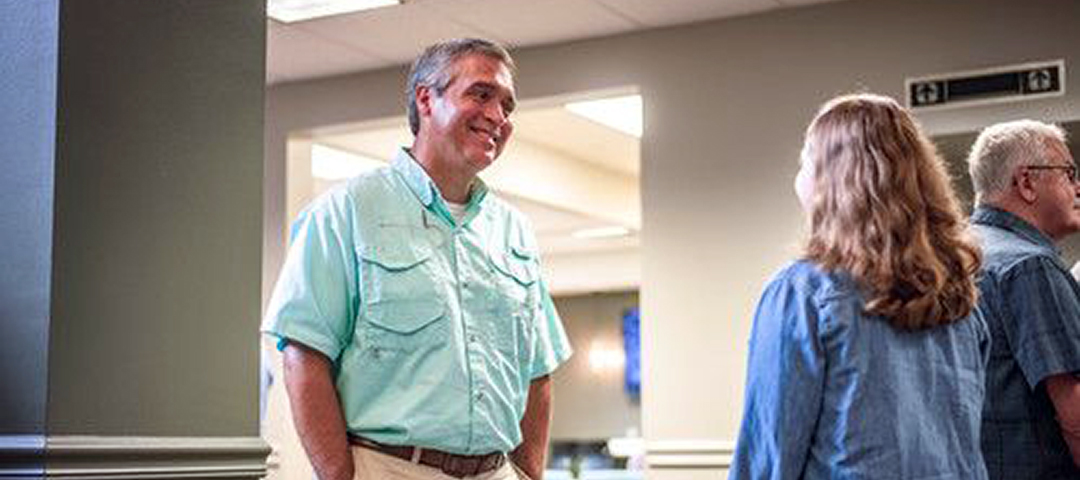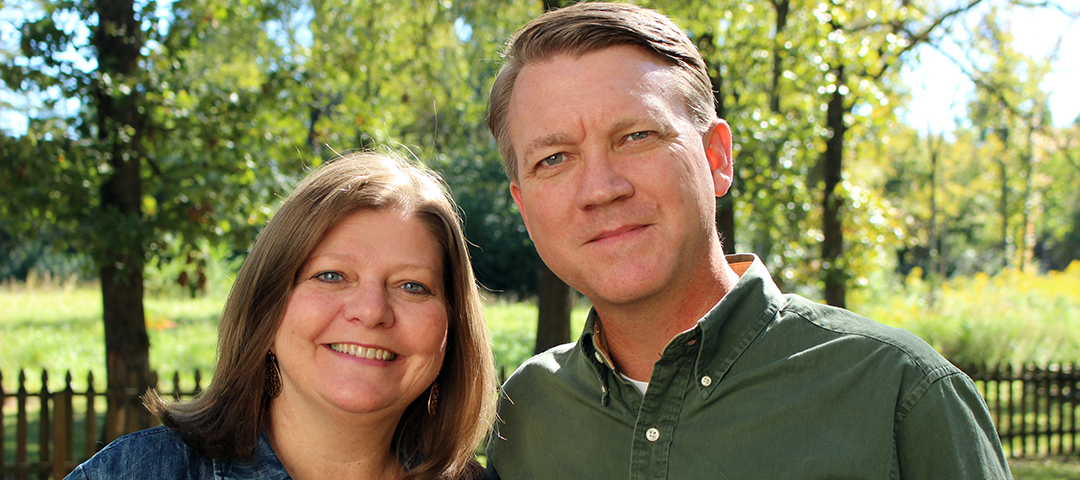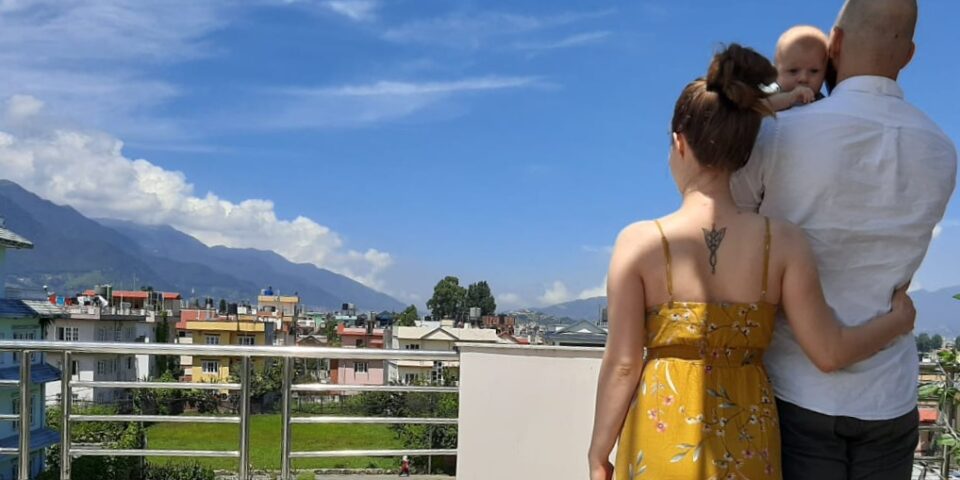
A Heart for Your Community = A Heart for the Nations
September 20, 2022
Local-Church Driven
September 27, 2022Although they were born and raised in two different countries, Jacob and Miriam had very similar upbringings. Both were raised in Christian homes, saved at young ages, discipled by their parents, and profoundly affected by short-term mission trips. But it was a love for the lost and a burden to share the gospel that finally brought them together in the country of Nepal. Their story is one of providence and faithfulness:
Her Story
Miriam grew up in Alberta, Canada, and after high school graduation applied to film school in Toronto. After being accepted, she heard about a couple in her church serving in Nepal, so she visited the country on a trip that changed the course of her life. She says, “We went into the villages sharing the gospel and I remember just coming out of a small, dark one-room house where we had all just been praying aloud in our own languages. After looking out over the vast mountains, a question popped into my head: “Will you come back?” And yes, I knew I was coming back. I immediately canceled my school plans to follow God and serve him overseas, a desire I knew only the Holy Spirit could put in my heart in exchange for an ordinary life.”
For the next year, she raised funds then spent two years in Nepal.
His Story
“Growing up in Texas,” Jacob says, “everyone I knew was a believer. I was saved in AWANA, grew up being taught the Bible then theology, which was emphasized in high school. I knew God made me, had a plan and purpose for me, but it took a while to know exactly what that purpose was.”
After a mission trip to Mexico at the age of fourteen, he felt the call to be part of missions in some way. During high school, he says, everyone seemed to know their calling, but he only knew that God had a purpose for him, so he surrendered to ministry at sixteen, willing to do anything . . . except pastor. Still uncertain about the specifics, he went to Jacksonville College, then BMA seminary. He knew seminary teaching was the right next step, so he enrolled at Mid-America Seminary in Memphis, supporting himself at Chick-fil-A, which, he says, actually had a greater impact than seminary because of the people he met.
During that time, he served as youth leader at a Spanish-speaking church even though he did not speak the language. However, the cross-cultural ministry experience was invaluable as he helped young Hispanics learn about the Bible while he learned Spanish. Between semesters at seminary, Jacob went to Nepal on a short-term trip and knew immediately that being part of missions was God’s desire as well as his own. Now in his mid-twenties and unsure what God was shaping him for, he says, “Being in Nepal, seeing the needs and opportunities, I knew it was what God wanted of me. After a Iot of reading and seeking advice I realized I was not being productive. So I moved home immediately, got rid of all my stuff, and prepared for Nepal.”
Jacob and Miriam
After meeting in Nepal and serving together, they began a two-year friendship, realizing that they were similar in their theology, upbringing, and sense of humor. After grieving together at the tragic loss of two mutual friends, they had different perspectives on their friendship, and three months after leaving Nepal, Miriam told Jacob she had liked him for six months. Three days later Jacob booked her a plane ticket for a visit to the States where she met his family. It didn’t take long to realize their love for each other, and in the next six months she met his family, they got engaged, and set their wedding plans . . . then Covid complicated everything.
But despite the visa issues, cancellations, restrictions, loopholes, paperwork, and a failed border crossing, on May16, 2020, they were married in Texas. Although her friends and family in Canada could not attend, they trusted that God was in control, and that included future plans.
Serving Together
The next decision was whether or not they would return to Nepal and if so, how? They both felt the call to go back, which didn’t surprise their parents. Jacob says, “Even before we decided to be married, we wanted the same thing in our lives and began thinking ‘There is still such a need here (Nepal) and so much work to be done, and we have the advantage of knowing some of the language.’ So we decided to go back.”
But Covid continued to be a factor, so getting there wouldn’t be easy. Because he was American, Jacob couldn’t stay in Canada, and Miriam couldn’t stay in America much longer. Nepal’s borders were closed, but they were praying to return in January of 2021. As the months went by, the borders seemed to still not be opening. Instead of giving up, they told everyone they were leaving.
They said to God, “We want to be used somewhere.” They told everyone else they were leaving and began packing. A team in Bangladesh offered to let them join their group leaving around Christmastime. With the opportunity to be close by until the Nepal border opened, they accepted the offer and applied for visas. But Jacob did not receive his until ten days before leaving, so they only had a few days to pack and say their goodbyes. In Bangladesh they couldn’t do much outreach because few people spoke English, so they taught English to Muslim students in the city, did some relief work in the Rohigya refugee camp, and built relationships with the organization’s workers by helping with their English.
Two months later Nepal opened up, but their return “home” felt different than when they were single.
Single vs. Married
Looking back at pre-marriage life in Nepal, the couple realized the recklessness of two-day bus rides and walks through mountains with no GPS or map, no food or housing. Sometimes they journeyed to unknown areas despite the threat of monsoons and staying in the homes of strangers. They had always trusted God to provide, and he always kept them from harm. The goal of the organization they were part of was to cover a whole region by going door to door and sharing the gospel without any guidance. But they began to question that goal.
Jacob explained that, “We had shared the gospel for two years and loved sharing it with those who had never heard, but after returning this time we realized the quick sharing and conversions didn’t help people grow and mature and produce healthy fruit. It was just getting saved and nothing after that. Converts never truly followed Christ or found a church. Also, the few churches in Nepal were unhealthy or partially healthy with demon possessed leaders working in the name of Christ and training pastors and leaders to do the same. That is what brought us back: How can we help with this problem?”
Gospel Hindrances
Until the 1950s Nepal was a completely closed off kingdom. There weren’t even any tourists, much less missionaries, so today the country has some first- and second-generation believers. Now a creative access country, Jacob and Miriam have hope for new believers through God’s ministry. They believe Nepal is a mission field with so much opportunity to reach people and see them grow through intentional discipleship.
They also believe if that growth is not coupled with a good foundation and solid teaching, they will encounter the same problems as in other countries. Miriam says, ”We’ve had multiple experiences with police including interrogations or running through the jungle to hide from their pursuit. Some people are very receptive and some have yelled at us to leave and become very aggressive. We have to be careful because the law says you cannot proselytize or do anything that looks like evangelism. Even if someone else opens up that conversation, we can’t say anything negative about Hinduism.”
There are many cults, demonic possessions, and false teachers like “mother of god” and Jehovah’s Witness religions, so it’s hard to break through that barrier of bondage and traditions. Their beliefs make up their culture, and belief is the culture. Hinduism and Nepal are not separate, and their caste system affects everything. All festivals revolve around Hinduism, so it’s hard for people to believe there is one singular God because they have worshiped multiple gods their entire lives.
Friendship and the Gospel
For three years, Jacob has invested in a friend with the intention to share the gospel, but now he comes to the man’s clothing shop once a week for coffee and tea then Jacob prays, which his friend loves. In addition to Jacob’s initial gift of a Bible, he prayed for the shop owner during that first visit, and when he returned the following day, the man said, “Your prayer worked because I had so much business in my shop after you prayed, so keep praying!”
Jacob says his friend doesn’t understand the gospel, his heart isn’t ready, and he doesn’t care enough about the gospel yet. The son of a Hindu priest, his high caste position prevents him from accepting any alternate belief, and there has been no life change. Still, Jacob is invested in the friendship long term. He says, “These people aren’t projects. They are people, and I don’t view our friendship as a transaction. They aren’t numbers; they’re friends. It takes people many times to hear and understand, so you never know when it’s going to click for them. I don’t bring the fruit, God does.”
Family
In May of 2022, baby Malachi was born in Nepal. The family is currently on furlough to raise support and visit their Canadian and American families.
If you’d like to partner with them, click on https://app.securegive.com/BMAMissions/main/donate/category

